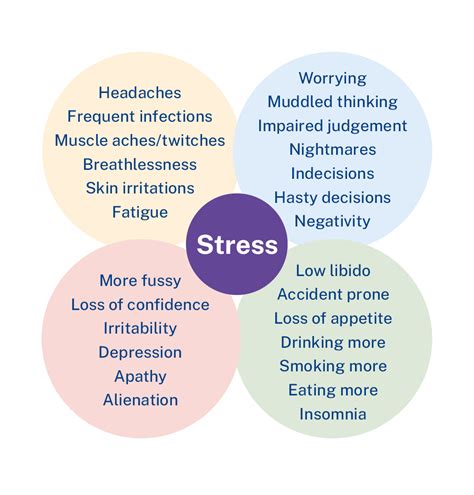How can men naturally boost testosterone for peak energy & performance?

Understanding Testosterone’s Role in Men’s Health
Testosterone, the primary male sex hormone, plays a pivotal role far beyond just sex drive. It’s crucial for muscle mass, bone density, fat distribution, red blood cell production, and perhaps most notably, for energy levels, mood, and cognitive function. As men age, testosterone levels naturally begin to decline, often leading to symptoms like fatigue, decreased libido, reduced muscle mass, and even mood swings. The good news is that numerous natural strategies can help optimize your body’s testosterone production, empowering you to reclaim peak energy and performance.

1. Optimize Your Diet for Hormonal Balance
What you eat directly impacts your hormonal health. A diet rich in whole, unprocessed foods can support testosterone production, while poor dietary choices can hinder it.
- Healthy Fats: Don’t fear fats! Monounsaturated and polyunsaturated fats (found in avocados, olive oil, nuts, seeds, and fatty fish like salmon) are vital for hormone production. Saturated fats in moderation from quality sources can also be beneficial.
- Lean Protein: Adequate protein intake (from lean meats, poultry, eggs, fish, and legumes) supports muscle growth and repair, which is intrinsically linked to testosterone levels.
- Micronutrients: Pay attention to Zinc, Vitamin D, and Magnesium. Zinc is crucial for testosterone synthesis (found in oysters, beef, pumpkin seeds). Vitamin D, often called the ‘sunshine vitamin,’ functions like a steroid hormone in the body (found in fatty fish, fortified foods, and sun exposure). Magnesium aids in testosterone bioavailability (found in leafy greens, nuts, seeds).
- Limit Sugars and Processed Foods: High sugar intake can lead to insulin resistance and inflammation, both of which can negatively impact testosterone levels.

2. Embrace Strength Training and High-Intensity Interval Training (HIIT)
Exercise is a powerful natural testosterone booster, but not all exercise is created equal. Focus on specific types that yield the greatest hormonal benefits.
- Strength Training: Compound exercises that engage multiple large muscle groups (squats, deadlifts, bench presses, rows) are particularly effective. Aim for heavy lifts with proper form, focusing on progressive overload.
- High-Intensity Interval Training (HIIT): Short bursts of intense exercise followed by brief recovery periods can significantly elevate testosterone. Examples include sprints, battle ropes, or cycling intervals.
- Avoid Overtraining: While intense exercise is good, excessive or prolonged cardio without adequate recovery can increase cortisol (a stress hormone), which can suppress testosterone.

3. Prioritize Quality Sleep
Sleep is often the most overlooked component of hormonal health. Chronic sleep deprivation can drastically reduce testosterone levels.
- Aim for 7-9 Hours: Most testosterone release occurs during sleep, particularly during REM and deep sleep cycles. Consistent insufficient sleep can lead to a significant drop in levels.
- Optimize Sleep Hygiene: Create a cool, dark, and quiet sleep environment. Avoid screens an hour before bed, and establish a consistent sleep schedule, even on weekends.

4. Manage Stress Effectively
In today’s fast-paced world, chronic stress is a common culprit behind many health issues, including hormonal imbalances. When stressed, your body produces cortisol.
- Cortisol vs. Testosterone: Cortisol and testosterone have an inverse relationship; as cortisol levels rise, testosterone levels tend to fall. Chronic stress keeps cortisol elevated, constantly battling your body’s efforts to produce testosterone.
- Stress Reduction Techniques: Incorporate stress-reducing activities into your daily routine. This could include meditation, yoga, deep breathing exercises, spending time in nature, pursuing hobbies, or simply dedicating time for relaxation.

5. Consider Natural Supplements (Wisely)
While diet and lifestyle are primary, certain natural supplements can offer additional support, but always consult a healthcare professional before starting any new supplement regimen.
- Vitamin D: If your levels are low, supplementation can be highly beneficial.
- Zinc and Magnesium: Again, if your dietary intake is insufficient or you have a confirmed deficiency, supplementation can help.
- Herbal Support: Some herbs like Ashwagandha (known for stress reduction) and Fenugreek have shown promise in certain studies for supporting testosterone levels.
Conclusion: A Holistic Path to Peak Performance
Boosting testosterone naturally isn’t about finding a single magic bullet; it’s about adopting a holistic lifestyle approach. By consistently prioritizing nutrient-dense foods, engaging in effective exercise, ensuring quality sleep, and actively managing stress, men can create an optimal environment for their bodies to produce testosterone. This natural optimization can lead to enhanced energy, improved mood, greater physical performance, and an overall elevated quality of life. Remember, consistency is key, and listening to your body’s signals is paramount in your journey toward peak health and vitality.









